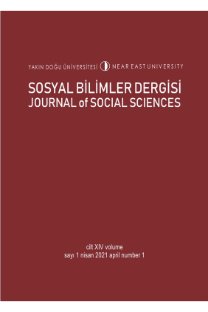State centric Russian energy policy and rapprochement in russia-Turkey relations
Sovyetler Birliği’nin dağılmasından sonra, Rus dış politika yapıcıları ilk olarak liberal ekonomiye, batılı kurumlara adaptasyona ve batılı ülkelerle yakınlaşmaya odaklanmışlardır. Ancak, bu süreç Andrei Kozyrev’in dışişleri bakanlığı görevinden alınması ve yerine Yevgeni Primakov’un atanmasıyla son bulmuştur. Primakov 1990’lı yılların ortasında Rus siyasetinde Avrasyacı fikirlerin öncüsü olmuştur. Öte yandan, Rusya 1990’lı yılların ortasından sonra Türkiye ile ekonomik, sosyal ve siyasal alanda yakınlaşmaya önem verirken enerjiyi bir araç olarak kullanmıştır. Turkiye de Rusya’nın bu isteğine olumlu yanıt vermiş ve iki ülke arasındaki ekonomik ilişkiler diğer sektörlerde de gelişmiştir. Sonuç olarak, ekonomik alanda Rusya ve Türkiye karşılıklı bağımlılığa dayanan bir ilişkiye sahip olmuşlardırr ve bu ilişki iki ülke arasında çok boyutlu bir ortaklığı ortaya çıkarmıştır.
Rusya’nın devlet merkezli enerji politikası ve rusya-Türkiye ilişkilerinde yakınlaşma
After the dissolution of the Soviet Union, first of all, Russian foreign policy makers have focused on adaptation of Russia to liberal economy, western institutions and rapprochement with western countries as well. However, this process has ended with the dismissal of Andrei Kozyrev, the minister of foreign affairs who was replaced by Yevgeni Primakov. Primakov became the pioneer of Eurasian idea on Russian politics in the mid 1990s. Putin strengthened the state control over the energy sector in the early years of his presidency. He also has aimed to rectify the image of Russia in international politics by using the energy sector as an instrument and diversifying of export routes as well. On the other hand, Russia has also emphasized rapprochement with Turkey on economic, social and political spheres by using the energy instrument after the mid 1990s. Turkey has answered the will of Russia positively, thus both countries have developed their relations also on other economic sectors. Eventually, Turkey and Russia have become interdependent on the economic sphere and this has led to the emergence of multidimensional partnership between the countries.
___
- ISSN: 1986-1303
- Yayın Aralığı: Yılda 2 Sayı
- Başlangıç: 2008
- Yayıncı: Yakın Doğu Üniversitesi
Sayıdaki Diğer Makaleler
The position of grivas in Us’ Cyprus policy
Ideological process of shopping malls within the framework of ‘glocalization’
Toplamsal ifadeler içeren problemlerin çözümündeki tersine çevirme prensibi uygulamaları
The development of nationalism in india
Doğu-batı söylemleri çerçevesinde Türkiye – Avrupa/avrupa birliği algıla(mala)rı
State capitalism and Russia’s energy policy in northeast Asia
Köy enstitüsü mezunlarının halkçılık anlayşının eleştirel bir incelemesi
State centric Russian energy policy and rapprochement in russia-Turkey relations
